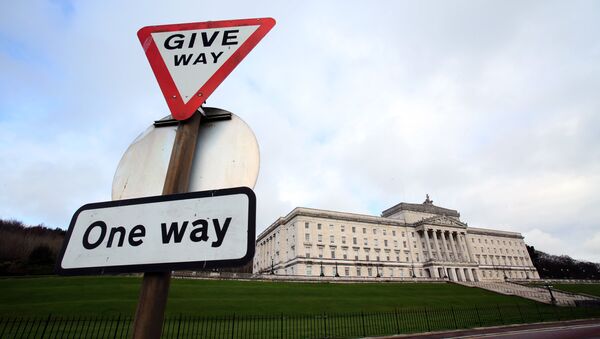British Prime Minister has reiterated her government's commitment to preventing the formation of a hard border between Northern Ireland and the Republic of Ireland after the United Kingdom leaves the European Union. The Prime Minister restated the commitment after a meeting of the Council of Europe in Brussels at which she was warned by Donald Tusk that she was facing the last opportunity for Britain to "place its cards on the table" and negotiate a final Brexit arrangement before October.
Theresa May has to propose something:
— Law and policy (@davidallengreen) July 2, 2018
— which resolves the Irish border issue;
— keeps her Tory and DUP majority intact; and
— which is acceptable to EU27.
How does she cross the river when she can only carry one or two at a time?
https://t.co/hjxtoc9YaW
— Sue Wilson #FBPE (@Suewilson91) July 3, 2018
"Whether she knew what she was doing or not, the crucial moment in May's Brexit negotiations was in December 2017, when she signed up to an accord that made her promises on the Irish border legally binding."
Has she ever known what she was doing?
The truth is that there is no third way on customs. It's either a soft Brexit or crashing out without a deal, says @stephenkb https://t.co/MN47UiLN7e
— The Staggers (@TheStaggers) July 3, 2018
The dispute has remained unresolved since December 2017 when London and Brussels both committed to maintaining the "regulatory alignment" of Northern Ireland with the EU in order to prevent customs checks and other border controls. Last year's preliminary agreement however, was nearly sunk by the Democratic Unionist Party of Northern Ireland, whose 10 sitting MPs enable the Conservatives to continue in government. The DUP said it would not allow an effective customs border to go up between Northern Ireland and the rest of the United Kingdom, which would weaken its institutional links to the rest of the country.
The Prime Minister's stated goal to pull the UK out of all of the EU's economic institutions, including the Single Market and Customs Union has complicated her attempts to maintain "frictionless" trade across the Irish border, which Dublin has said is a condition that must be met in order to prevent it vetoing the entire final Brexit settlement.



